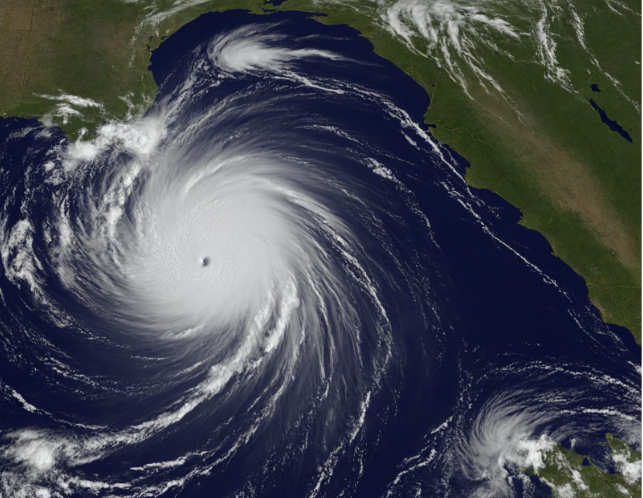Breaking News
Hurricane Debbie Nears Landfall, Heavy Rains Expected

As Hurricane Debbie churns toward the northeastern Gulf Coast, residents brace for a potentially devastating impact. Expected to make landfall within the next 48 hours, the storm's effects could be wide-reaching and severe. Breaking News Alerts is providing you with the latest updates on Hurricane Debbie, including the expected time of landfall, affected regions, and potential damage.
When and Where Will Hurricane Debbie Make Landfall?
Hurricane Debbie is currently projected to make landfall near the Florida Panhandle, specifically in the Big Bend region. As of the latest advisory from the National Hurricane Center, Debbie's center was located approximately 90 miles south-southwest of Apalachicola, Florida. The storm's sustained winds are currently around 50 mph, but meteorologists expect it to strengthen as it approaches land.
Areas Likely to Be Affected
The regions most at risk from Hurricane Debbie include the Florida Panhandle, southeastern Alabama, and parts of southern Georgia. Coastal areas in these regions are under hurricane warnings, indicating that sustained winds of 74 mph or greater are expected. Inland areas should also prepare for significant rainfall, leading to potential flooding.
Potential Damage and Hazards
Flooding: One of the primary concerns with Hurricane Debbie is the potential for severe flooding. The storm's slow movement allows for prolonged heavy rainfall, with some areas forecasted to receive up to 25 inches of rain. Low-lying neighborhoods in Florida’s elbow and other coastal regions are at significant risk of flooding. Residents in these areas have been urged to evacuate and seek higher ground.
Wind Damage: High winds are another critical threat posed by Hurricane Debbie. Sustained winds are expected to strengthen, potentially causing damage to homes, businesses, and infrastructure. Authorities have already reported damage to structures in Florida due to tornadoes spawned by the storm. Power outages are likely, with some areas possibly experiencing prolonged blackouts.
Storm Surge: Coastal areas should also prepare for storm surges, which can cause life-threatening inundation from rising water. Residents in affected areas are advised to follow local evacuation orders and stay updated on the latest advisories from the National Hurricane Center.
Preparing for Hurricane Debbie
Here are a few reminders that can help you weather the storm better. Always stay on the alert and be prepared to move when safety requires you to.
Stay Informed: Continuously monitor updates from reliable sources such as the National Hurricane Center and local weather services. These updates will provide critical information on the storm's path, intensity, and safety recommendations.
Evacuation Plans: If you live in a coastal or low-lying area, have an evacuation plan in place. Know your evacuation routes and have a destination in mind. Follow the instructions of local authorities and evacuate immediately if ordered.
Keep Numbers Handy: Get a list of all your local medical centers, police stations, and fire department and have copies available throughout the house. The national hotline for disaster assistance in the United States is the Federal Emergency Management Agency (FEMA) Helpline. You can reach FEMA for help by calling 1-800-621-FEMA (1-800-621-3362).
Emergency Supplies: Ensure you have an emergency kit ready, including essential items such as water, non-perishable food, medications, and important documents. Charge your electronic devices and have backup power sources if possible.
Home Safety: Secure your home by boarding up windows and reinforcing doors. Bring outdoor furniture and other loose items inside to prevent them from becoming projectiles in high winds.
Stay Safe from Hurricane Debbie and Be Prepared!
Hurricane Debbie poses a serious threat to the Gulf Coast, with the potential to cause widespread damage from flooding, high winds, and storm surges. By staying informed and prepared, you can help protect yourself and your loved ones from the storm's impact.
Remember, safety should always be the top priority during severe weather events!
Click here to subscribe to our newsletter and ensure you're always in the know.
